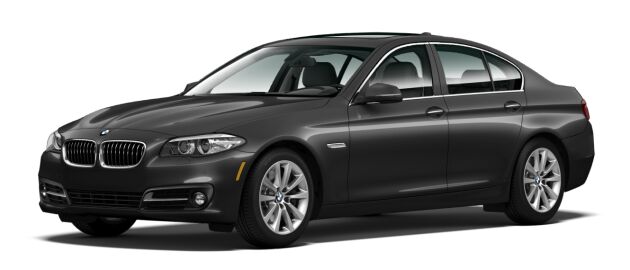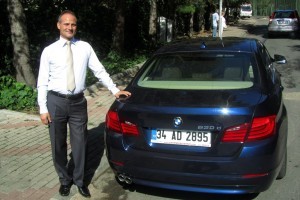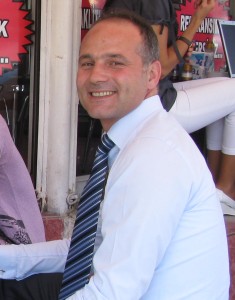This is an excerpt from my upcoming memoir . . .
July, 2010. I close the thick door of my apartment and descend two flights of stairs. Out the grille-framed door with a clang and down the marble-paved walk slippery with the morning’s dew. American thoughts of falling down and lawsuits.
Smile on my face, I open the black metal gate to the compound and greet the trim youngish man leaning against the car. He turns, stamps out an unfinished cigarette, and smiles back.
“Iyi gunler,” Good morning, Ümit says.
“Iyi gunler. Nasilsiniz?” How are you? I reply.
“Iyiyim, siz?” I’m fine, and you?
A slight pause because the Turkish words still don’t come easily to my lips. Then,“Ben de iyiyim,” I am also fine.
Sankar had asked me earlier this morning if I needed Ümit’s services. At first I’d said no. I couldn’t think of any errands I had to do. But then, feeling charitable, I reconsidered.
“Okay,” I said. I could go for a run at our new health club. It was only 7:30 am, but the outside temp was approaching 80 and the air was sticky. “Tell him to come at about quarter to ten.”
Dressed in a gray suit and white shirt, and wearing a tie, Ümit opens the back passenger door for me. I slide into the car’s pale interior. Then we head for Hillside, a health club Sankar and I have recently joined.
Our car, a BMW 5-series, is leased for us by the company. Employers in Turkey provide cars for their sales and management staff, and they also pay for petrol, which tamps down discontent over the $12.00 per gallon price. The kind of car assigned depends upon one’s level in the organization. At his level, Sankar’s choices are a BMW 535 or a Mercedes E-class.
We are hoping to see much of Turkey, and I picture us driving around the Turkish countryside and into small agricultural towns in a shiny, royal blue BMW. “I’d rather have a beat-up Ford,” I tell Sankar. He does not reply.
It takes about fifteen minutes for Ümit and me to reach Hillside, a small, cube-shaped building adjacent to a small parking lot. Ümit lets me out next to the door and I look at my watch, trying to come up with the Turkish word for “half hour.” He humors me, even though he knows the English word.
After a moment I have it, “Yarın saat.” He nods, smiling. I will be back at the car in a half hour.
The club is built mostly underground, floor after basement floor of workout equipment and exercise rooms. I enter the building and descend several floors in an elevator. The floors are marked in negative numbers, -1 being the first below ground, -2 the second, and so on. Ground level in Turkey is always 0. To make the space look bigger, nearly all the walls are mirrored. I get confused as to what negative floor I’m on and irritated constantly seeing myself in the mirror.
I find a room with treadmills and select one. When I start it up, a video advertisement loops on its small screen: a collage of Turkish young people whitewater rafting, then doing stretches together in some kind of class, and finally enjoying drinks at what looks like a New Year’s Eve party. All aimed at a younger crowd, and I feel the slight. I miss my country, which still caters to baby boomers.
Thirty minutes later, workout complete, I ascend to street level. Despite the heat, Ümit is standing outside, leaning against the car. It occurs to me that he has probably sweated more than I in the last half hour, and I feel a twinge of guilt.
Do I have any more errands? Well, I need a few things at the grocery store.
Ümit drives me to Macro, a German chain, heading toward the Bosphorus through street after apartment-filled street. Finally, he takes a left and descends a steep, narrow hill. Halfway down, cars back up and we stop and wait. Although our angle is vertiginous, I enjoy the view of red-roofed dwellings and the wide blue Bosphorus.
We pull up at Macro in Kuruçesme (Kuru = dry, çesme = fountain), a former seaside village now part of a nearly unbroken string of development from the Golden Horn up to the Black Sea. In Ottoman times, marble fountains were constructed throughout the city to provide water to neighborhoods. Some were elaborate sebilis, featuring wide-brimmed, hat-like roofs and elaborate grillwork behind which generous citizens would stand and give out cups of water. The fountains’ vertical surfaces are often inscribed with poetic versis in the Arabic script, Osmanlı Turkish, which was used in Turkey before 1928.
Kuruçesme’s small, defunct fountain is directly across the busy Sea Road from Macro. The supermarket offers approximately ten parking spaces. Ten. It goes without saying that these are invariably filled. A tall man with a salt-and-pepper Beatle haircut stands outside the store chatting with the proprietor of a nearby newsstand. He is Macro’s parking guy, and when he sees our car, he motions for Ümit to stop behind the row of ten cars. Ümit will wait, and when someone leaves, the man will direct our car into that space.
Macro’s colorful produce section greets me as I walk in: plump eggplants, thick bunches of flat leafed parsley, bulbous celery roots, peppers of all shades of green, red and yellow, and unusual (to me) greens such as purslane and sea beans. Tomatoes nearly burst out of their bins, and I select one as well as a luscious-looking, yellow-and-green-striped melon.
I walk down an aisle that features only yogurt and then turn the corner and choose a box of long-life milk whose package reads, somewhat confoundingly, .1% yağ (.1 % fat). A display of Nestle brand cereals sits nearby and I grimace, recalling that company’s efforts to convince Yemeni parents to buy infant formula, and the desperately hungry babies I witnessed. I’ve maintained a decades-long boycott on Nestlé products, but I’ve broken it here in order to eat my normal breakfast.
Macro’s floors are so highly polished, so frictionless, that it seems like I am pushing a cart on a skating rink. I have to grip the handle tightly to make sure it doesn’t skate away from me. Another slippery surface. This time I don’t think about lawsuits, but about causing an accident. The polished floor extends out the store’s entrance and about four feet into the parking area. The first few times I rolled a full shopping cart onto this apron, I nearly lost control of it. It would have shot out into the middle of the busy Sea Road.
But today I only have six or seven items: milk, cereal, assorted fruits, a package of cookies. I pay for them at the checkout, sliding a debit card through a tiny smart-card machine and then entering a PIN number. Ümit comes into the store and asks if I need help. No, I say, but he scoops up my bag anyway and carries it to the trunk of the car. I thank him.
“Başka bir şey,” anything else? he asks, and I say no. The road up the hill is single lane in two parts, and at the first, we wait until an oncoming car comes down. The general rule is, if you are on a one-lane incline with no other cars visible, accelerate with as much power and noise as you dare in order to establish your right of way. Another car about to head toward you will then stop and back up, or pull over. At least that’s the theory. It’s actually a game of chicken because an oncoming car could decide to play the aggressor at exactly the same time.
After several hairpin turns, we are up on top, parking in the shade outside my apartment building.
“Do you need any help?” Ümit asks, taking my bag out of the trunk.
“No, I’m fine,” I reply, and we exchange smiles. He hands the bag to me.
“Iyi akşamlar,” have a good afternoon, he says.
Before I even arrived in Turkey, Ümit, a salaried employee who had previously worked as a driver for a pharmaceutical company, had begun telling Sankar that he was bored, ready to have more to do. He was eager to be my driver. I learned that, in addition to getting settled and building a new life in Istanbul, I would be taking on an employee, and would be at least partially responsible for helping Ümit fill his days.
At first, having Ümit help me wasn’t a big deal. I was busy shopping for sheets, towels, and kitchen utensils, and needed to locate IKEA and other home furnishing stores in the tangle of new highways west of the city. I wanted to stock my kitchen, and had to rely on Ümit. Ümit navigated Istanbul on my behalf. He also accompanied me through the local stores and began teaching me the Turkish I needed to function.
But now, after two months in Istanbul, my major shopping expeditions have dwindled. Each day I get up, write and answer correspondence. I might go for a walk or run alongside the Bosphorus or buy a few groceries. I can do this by myself, on foot.
I tell Sankar that I felt silly making Ümit fight bridge traffic from the Asia to the European side each morning just so I can run a mile at the club. Sankar doesn’t understand; he was raised with servants, and he has no problem dealing with “help.” I was surprised recently when several rug sellers visited our house with samples. Sankar asked Ümit to be on hand to translate, and Ümit showed up about fifteen minutes early. Instead of inviting him in, however, Sankar had him wait downstairs in the car until the dealers arrived. “Waiting is part of his job,” Sankar reassured me, but I felt like we were delivering an insult.
There is something about a younger man helping a woman twenty years his senior that makes me feel uncomfortable. It offends my decades-old feminism and pricks my newer concern—reinforced here in youth-oriented Turkey—about becoming old and frail. It makes me think of the movie, Driving Miss Daisy, in which an older woman hires a younger, male driver when she is no longer able to get herself around safely.
For Sankar, Ümit represents transportation to work, but when I use the services of a driver, I hear my mother’s voice, “Who do you think you are?”
It seems as though I will be with Ümit nearly every time I go out in Istanbul for the entire three years I live here. This realization makes me feel a kind of trapped despair.
There is another family here who works for the company. Leslie is from a small town in Iowa, and first went to Turkey two decades ago on a high school exchange trip. She met her Turkish husband in graduate school in Minnesota. The company hired him in Minnesota as a scientist, and when it came time to fill a job in its fast-growing Asia Minor subsidiary, Leslie and Fuat were an ideal choice. They moved to Istanbul with their two young boys about a year before us.
Leslie is warm and unpretentious, eager to introduce me to her friends. She belongs to a lunch group that meets every few weeks in a nearby mall, and one day I join it. It includes women from Great Britain, Indonesia (the Indonesian woman brings a nanny to attend her toddler), Brazil, and the Dominican Republic. After purchasing hamburgers, pasta or kebabs from nearby American, Italian and Turkish restaurants, we sit down in an elegant center food court together, the Dominican woman across from me. Since we’re both from the Americas, the two of us greet each other as “neighbors.” She is tiny and bejeweled, and enthuses in heavily accented English about how she spends her days on the prowl for new clothes and furniture here.
What she goes on to say next surprises me. She drives herself around Istanbul.
“If you have a driver, you will lose your privacy,” she warns me. “Your driver will know everything you buy.”
True. The other day I needed to find a shop to photocopy a manuscript, but I didn’t care to explain my writerly strivings to Ümit, and brushed off his inquiry. Just yesterday I wanted to stop at a new bakery I’d discovered in Ortaköy and buy a pastry, but I felt ridiculous asking him to go out of his way for it.
“Don’t get a driver,” insists the Dominican woman. She searches for words. “It will make you feel like a stupid!”
I do feel like a stupid, quite often. I try to pay attention to the roads Ümit is taking me on, try to learn something each day in the car, but he uses different routes to the same places (sometimes I wonder if he does this to ensure his job security) or, frustrated with heavy traffic, turns off onto mazelike side streets that it seems only he can follow. True, I drove successfully in Sana’a and in San Jose, and that hard-earned competence gave me no small measure of pride. But Istanbul is more than ten times bigger than either of those cities. I tell my new Latin friend that I’m baffled by Istanbul’s roads, but she waves her hand. “I got lost every day for a month, but after that I knew how to get everywhere.”
Aside from anything the Dominican woman has said, I have a deeper a problem with being driven around. My grad school education was in international development. In addition to learning about problems in what was then called the Third World, I attended seminars on how to work sensitively in other cultures, and listened to near-daily warnings about the pitfalls of transferring American expectations overseas. After earning my degree, I moved to The Yemen Arab Republic, living in a modest home among locals, and working to train primary health care workers.
Although I have left the life of an international aid worker far behind, it is jarring to now find myself swaddled in such privilege. Having a driver, being escorted around Istanbul in a luxury car, not only makes me feel feeble and incompetent, but I’m worried it marks me as an ugly American, oblivious to the way “real” people live.
I know that I need to follow certain rules in foreign countries. If I don’t understand what someone says, I shouldn’t show frustration. If I have to wait for something I can get without delay in my own country, I should display patience and chalk it up to cultural differences. I need to be calm and low-key, taking in what is new rather than confronting it. In short, I need to take myself less seriously.
All those ideals seem to run contrary to motoring around the city in a BMW 535D, a suited driver leaping out at each full stop to open my door. It is ironic that, back when I had held a job overseas, I did most everything for myself, but now that I am a trailing spouse, my insignificant errands fill a grown man’s workweek.
I have never quite found the right career for myself, so my identity as a professional has always been shaky. Friends have always been important to me, and here I have none (I never see the lunch ladies again, except Leslie, and within a year she is gone, back to the States). Sankar isn’t to blame for my long-term lack of direction, but the move has removed our social underpinnings. And now, here I am, having what looks like an identity crisis over a driver.
The Dominican’s words have pushed the issue out into the open, and when I get back home, I open a discussion with Sankar. Wisely, as he knows how stubborn I can be when I get hold of an idea, Sankar doesn’t dismiss my concerns or try to talk me out of my feelings. He simply suggests another option. “We can buy a car here, one that can be for you,” he replies. “Then you can drive. You won’t need Ümit.”
Hmm. I hadn’t expected this response, and I think about it, imagining myself at the wheel of a car, playing chicken on the steep inclines up to our apartment, holding on for dear life as I wait in traffic on what seems like a 45 degree incline, and then getting onto one of the confusing çevreyolus with its incomprehensible numbered and color-coded system. I realize that Ümit has some real driving skills that I don’t possess.
I know parking spaces in the city are almost nonexistent; even before I left Minnesota I was told, “You can drive in Istanbul, but you can’t park.” I could take taxis, but that would also be hiring a driver. Or I could use public transportation and walk from bus or subway stops to my destinations. But alas, we are not located near Istanbul’s brand new subway system, and buses are considered less than reliable, particularly if I want to go to places other than in and out of the Old City. I can be dropped off at various points of mass transit, but I will still need some kind of driver.
And there is one other problem with the advice “don’t get a driver:” My driver has already been “gotten.” Ümit is real, not theoretical. At this point, if I decide I don’t need a driver, I will have to dismiss him. It will look to everyone (the company culture is tight) as if I have taken a dislike to Ümit. Or people will comment that Ümit has messed up, failed to do his job.
At this point, I realize I might be offending the culture more by rejecting Ümit than by continuing with him.
And I have to admit something else. Whenever I spend a lot of time by myself, I tend to brood, recalling past slights and running “what if I’d said that” scenarios in my mind. If I have my own car, I will not only be alone in the apartment all day, but I’ll also be moving around the city alone. As it is now, no matter how homesick or bored I am feeling, each day I have to emerge with a smile on my face and complimentary words about my new country. (How can I whine to Ümit, to any driver, about my “difficulties?”)
I’ve read that the act of smiling, even if the smile isn’t genuine, actually has an effect on the brain, serving as a mood lifter. And I can vouch for this: on more than one occasion, pretending to be lighthearted has actually created a buoyant atmosphere in our vehicle. And the resulting good mood has stayed with me the rest of the day.
So then: how to reconcile having a driver with my long-held values?
I decide to let the matter rest for a few days, and during those days we get busy with a trip outside of Istanbul. When we come back and I revisit the situation, I realize there is probably not going to be any resolution at all. Most likely I will continue just as I am, doing something I don’t quite approve of every day, every week, every month, the entire time I live in Turkey. Kind of like eating Nestle brand breakfast cereal every day.
I don’t welcome this dissonance, but it gradually becomes clear that trying to take myself less seriously here in Turkey might include not thinking every new situation to death. It might involve simply accepting the way things are, behaving the way people expected me to behave, taking the negatives with the positives. It also occurs to me that my efforts to be humble might actually be an example of “transferring American expectations overseas.”
Who really cares, anyhow? It isn’t as if some Cross-Cultural Arbiter is keeping track of Sue’s inconsistencies.
There is at least one consolation. It involves the Turkish language, one of my major interests here. With Ümit I can practice my fledgling Turkish, just as he tries out English words on me. We have already discovered a mutual love of words. And although Ümit is ahead of me, I secretly set a goal to become better at Turkish than he is at English.
Thus I begin to learn something that was absent from my grad school curriculum, but which I too note of in Costa Rica and might actually be practiced in much of the world: the art of skimming over what is unsettling or potentially unpleasant. The art of treating some, but not all, problems with a kind of deliberate superficiality. Later I’ll learn about cognitive behavior therapy, which is a fancy name for training oneself not to think about things by recognizing triggers and then re-directing your thoughts.
I resolve to accept my driver dilemma without further question, and I come to believe that this doesn’t make me a particularly shallow or hypocritical person. It simply makes me normal. Normal—and as time goes on, not all that unhappy.





